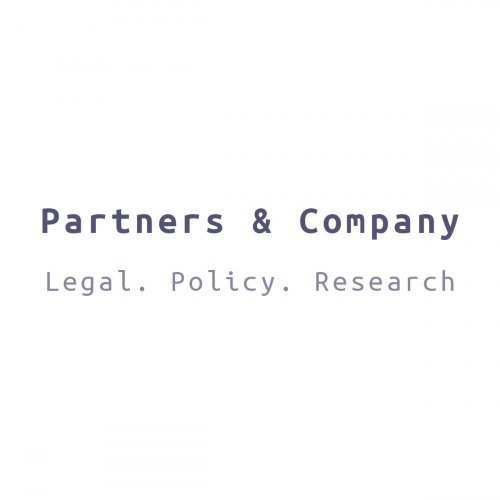Best Transportation Lawyers in Azerbaijan
Share your needs with us, get contacted by law firms.
Free. Takes 2 min.
Or refine your search by selecting a city:
List of the best lawyers in Azerbaijan
About Transportation Law in Azerbaijan
Transportation law in Azerbaijan encompasses all legal principles governing the operations of various transportation means such as road, rail, air, and maritime. Azerbaijan, being a strategically positioned country between Europe and Asia, serves as a vital transit hub for trade routes. As a result, transportation law plays a crucial role in facilitating not only domestic mobility but also international trade. This legal field includes regulations on vehicle safety, shipping and logistics, infrastructure development, and environmental considerations affecting transportation.
Why You May Need a Lawyer
Individuals and businesses may require legal assistance in transportation for several common reasons. Disputes could arise from road accidents, cargo damage, or contractual disagreements with logistics providers. Regulatory compliance issues might emerge, especially for companies involved in international shipping needing to adhere to safety and environmental standards. Legal advice may be imperative in cases of infrastructure projects encountering zoning laws or in addressing liability claims involving public transportation.
Local Laws Overview
Key aspects of transportation law in Azerbaijan include regulations concerning vehicle registration, road safety, environmental impact assessments for transportation projects, and customs laws for international trade. Road transportation laws are detailed in the Road Traffic Regulation Act, which covers licensing, traffic rules, and penalties. The Maritime Code outlines regulations for shipping, while the Customs Code provides guidelines on handling goods crossing Azerbaijani borders. These laws ensure all transportation activities align with safety standards and international norms, facilitating smooth logistic operations.
Frequently Asked Questions
What are the vehicle registration requirements in Azerbaijan?
Vehicles must be registered with the Ministry of Internal Affairs. This includes providing proof of ownership, insurance, and passing technical inspections.
Are there specific laws for commercial transportation?
Yes, commercial transportation is governed by specific regulations for freight and passenger vehicles, which include licensing requirements and compliance with safety and vehicle maintenance standards.
How is public transportation regulated?
Public transportation is subject to oversight by local and national transportation authorities to ensure safety, schedule adherence, and fare regulations.
What should I do if I'm involved in a road traffic accident?
Immediately contact local authorities and report the incident. Exchange contact and insurance information with the other party and seek legal advice if there are significant damages or injuries.
What are the liabilities of transportation companies in cargo damage?
Liabilities depend on the terms of the contract, but typically, the carrier is responsible for damage unless it resulted from natural disasters or insufficient packaging by the sender.
How do customs laws impact transportation?
Customs laws require accurate documentation and declaration of goods for cross-border transport to ensure proper import/export duties are applied.
Are there environmental laws affecting transportation projects?
Yes, transportation projects often require environmental impact assessments to ensure minimal adverse effects on Azerbaijan's natural environment.
Can I challenge a traffic fine or penalty?
Yes, individuals can contest traffic fines through the Traffic Police Department or legal channels if they believe the fine was unjustly imposed.
How are disputes in maritime transportation resolved?
Such disputes can be resolved through arbitration or legal proceedings, often guided by international maritime law principles and local regulations.
What steps are involved in initiating a transportation-related legal action?
The process typically involves consulting with a legal professional, gathering necessary documentation, and filing a claim in the relevant legal forum or court.
Additional Resources
Individuals seeking further guidance can contact the State Maritime Administration, the Ministry of Transport, Communications and High Technologies, and the Azerbaijan Customs Committee for official resources. Professional bodies such as the Azerbaijan Bar Association and transport law firms can also provide specialized legal consultation and assistance.
Next Steps
If you require legal assistance in transportation, consider reaching out to a qualified transportation lawyer familiar with Azerbaijani law. Obtain professional advice on your specific circumstances, gather any relevant documentation, and discuss potential strategies with your legal advisor. Engaging with local transportation authorities or relevant governmental bodies may also be beneficial in resolving any regulatory or compliance issues.
Lawzana helps you find the best lawyers and law firms in Azerbaijan through a curated and pre-screened list of qualified legal professionals. Our platform offers rankings and detailed profiles of attorneys and law firms, allowing you to compare based on practice areas, including Transportation, experience, and client feedback.
Each profile includes a description of the firm's areas of practice, client reviews, team members and partners, year of establishment, spoken languages, office locations, contact information, social media presence, and any published articles or resources. Most firms on our platform speak English and are experienced in both local and international legal matters.
Get a quote from top-rated law firms in Azerbaijan — quickly, securely, and without unnecessary hassle.
Disclaimer:
The information provided on this page is for general informational purposes only and does not constitute legal advice. While we strive to ensure the accuracy and relevance of the content, legal information may change over time, and interpretations of the law can vary. You should always consult with a qualified legal professional for advice specific to your situation.
We disclaim all liability for actions taken or not taken based on the content of this page. If you believe any information is incorrect or outdated, please contact us, and we will review and update it where appropriate.
Browse transportation law firms by city in Azerbaijan
Refine your search by selecting a city.









